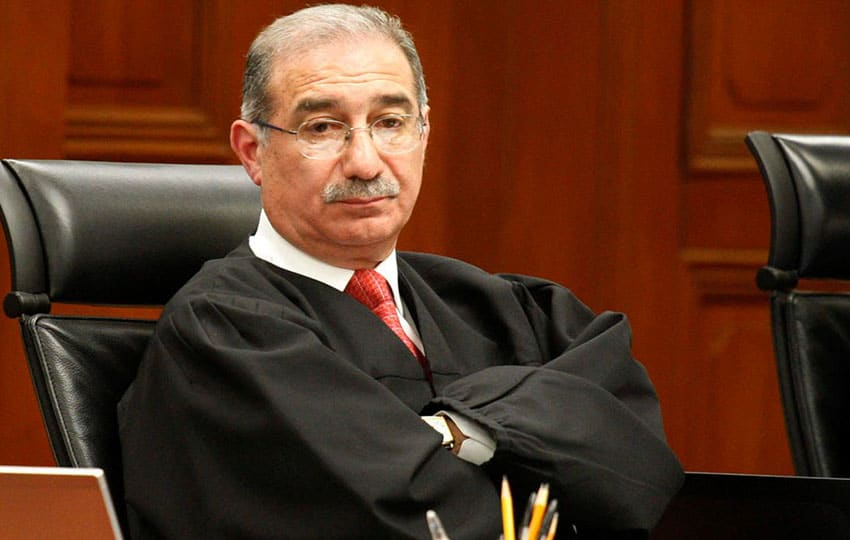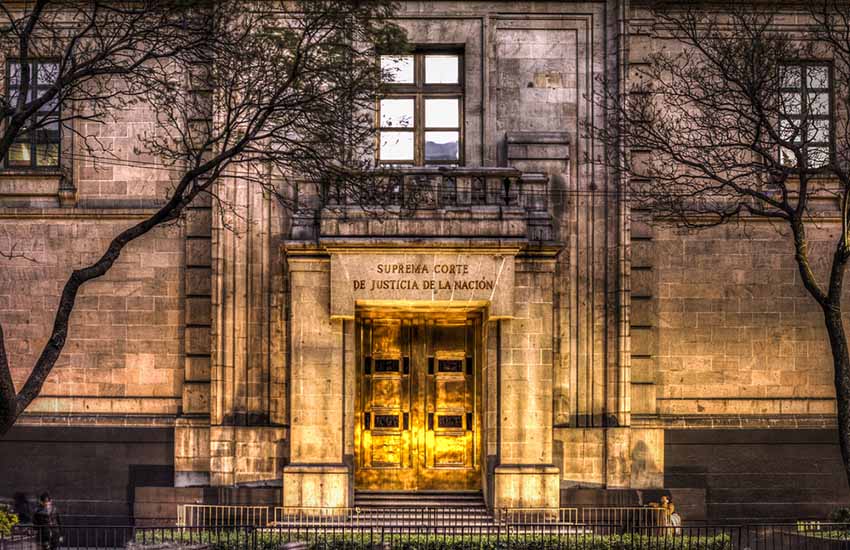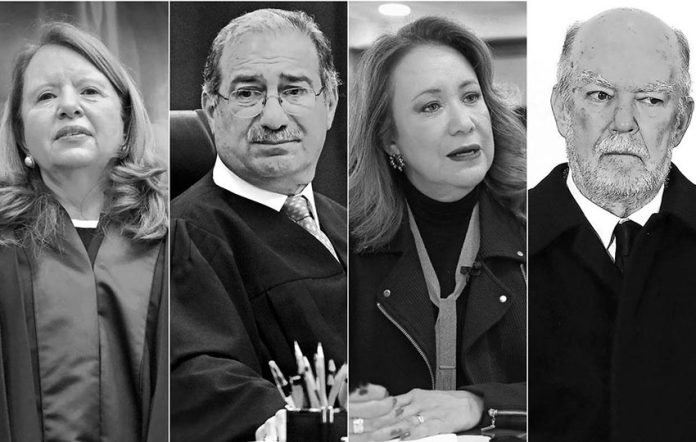A proposal to abrogate a constitutional provision that applies mandatory pre-trial detention (prisión preventiva oficiosa) for suspects accused of certain crimes appears doomed to fail after four Supreme Court (SCJN) justices rejected it on Monday.
The court’s 11 justices will rule today, September 6, on whether to invalidate automatic incarceration for people accused of crimes including homicide, rape, kidnapping, human trafficking, illicit enrichment, fuel theft, burglary and firearm offenses.
Eight justices must vote to repeal the constitutional provision in order for the proposal to be successful, but getting to that number won’t be possible without the support of the four justices who have spoken out against it. The proposal to end mandatory pre-trial detention was put forward by their colleague, Justice Luis María Aguilar Morales.
Justices Alberto Pérez Dayán, Yasmín Esquivel Mossa, Loretta Ortiz Ahlf and Juan Luis González Alcántara Carrancá all indicated that they would vote against annulling this provision contained in article 19 of the constitution.

Pérez said that he wasn’t the kind of person who “tears pages out of the constitution,” while Esquivel asserted that eliminating the provision would “leave society at the mercy of gangs dedicated to organized crime.”
The federal government also spoke out against the proposal, arguing that the measure is essential to ensure that suspects don’t evade justice and continue committing offenses. At President Lopez Obrador’s daily press conference on Friday, Deputy Security Minister Ricardo Mejía listed the names of several judges who had allegedly let suspects go free improperly.
At the conference, he also reinforced the federal government’s view that the proposal would work against the pursuit of justice and said that abrogation of elements of the constitution is not within the SCJN’s powers.
The four opposing justices also contend that the SCJN doesn’t have the authority to rule against the constitution. Only the federal Congress – with the support of two-thirds of lawmakers – can modify it, they said.

Ortiz suggested that a SCJN ruling against pre-trial detention would be in violation of the separation of powers doctrine. Similarly, Esquivel asserted that the court’s obligation to uphold the constitution takes precedence over the “observance” of international treaties.
Advocating for mandatory pre-trial detention’s abrogation, two National Autonomous University researchers recently noted that the Inter-American Court of Human Rights (IACHR) has made it clear that the measure is a violation of due process, the presumption of innocence and personal freedoms.
In defending his proposal, Justice Aguilar stressed that the intention is not to prevent judges from remanding accused criminals into preventive custody since judges would still have the ability to remand suspects via prisión preventiva justificada in cases where there is a flight risk and/or imminent danger to the community.
“When a crime is committed and the public prosecutor’s office has sufficient evidence to support an accusation, of course they will be able to request pre-trial detention,” he said.
The justice also emphasized that his proposal, if validated, wouldn’t lead to automatic release of all suspects held in pre-trial detention. Some 90,000 prisoners – four in 10 inmates – have not been convicted of the crime they are accused of committing, federal government data shows.
Other advocates of the elimination of mandatory pre-trial detention, such as Saskia Niño de Rivera – president of a civil society organization that helps ex-prisoners reintegrate into society – have noted that accused criminals are often left to languish in Mexican prisons for years before facing trial.

Niño de Rivera recently said she personally knew of people who have spent close to two decades in prison without facing trial. “In Mexico, [suspects] are guilty until the opposite is proven,” she said.
Two men who share that view are Daniel García and Reyes Alpízar, accused of the 2001 murder of María de los Ángeles Tamés, a councilor in the México state municipality of Atizapán. They spent over 17 years in pre-trial detention – a Mexican record – before they were released in 2019.
García and Alpízar – who are still required to wear ankle monitors and are not permitted to leave México state – have always maintained their innocence and denounced a range of human rights violations in their case, including the use of torture against them.
“It got to a point where I couldn’t take it anymore,” Alpízar said late last month in reference to the torture to which he was subjected. He told the newspaper El País that he was forced to sign incriminating documents without being privy to their contents.
García, who worked as the secretary of the mayor of Atizipán at the time, told El País that authorities also tried to force him to sign incriminating documents. “I refused, and they said to me, ‘If you don’t sign, we’re going to arrest members of your family,’” he said.
García’s father, son, brother and four cousins were subsequently detained, although they were later released due to a lack of evidence against them.
Late last month, García and Aplizar’s case reached the IACHR, which ruled that they were detained arbitrarily and acknowledged that they were tortured. The court, which heard the men’s case in Brasilia, also recommended the elimination of the mandatory pre-trial detention provision from the Mexican constitution.
With reports from La Jornada, El Universal, El País and Infobae
